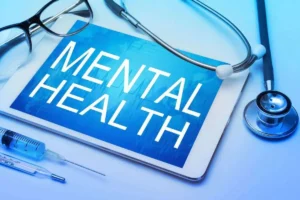Living in a world that always demands more—more output, more flexibility, and more resilience—it’s easy to ignore the silent signals your brain is sending you that it needs a break. Many people don’t realize they need a mental break because they’re stressed, exhausted, or emotionally drained. But the brain needs space to stay clear, balanced, and energized, just as the body needs rest to recover.
Taking a break for your mental health isn’t a sign of weakness. It’s a responsible approach that can help maintain good health. Recognizing the signs of emotional exhaustion, mental fog, or simply being overwhelmed early on can help you prevent bigger problems. This article discusses how to recognize the signs and, more importantly, how to actually take a break that benefits your mental health.
Understanding Mental Fatigue
Mental fatigue takes time to develop. It’s more than just tiredness; it can also include mental numbness, distractibility, or an inability to concentrate. Maybe you’re still going about your daily routine or getting enough sleep, but something seems off. That tired feeling doesn’t go away, even after a good night’s sleep.
The American Psychological Association states that chronic stress can impair memory, reduce emotional control, and increase the risk of anxiety and sadness. A mental break is like a pressure valve that allows you to release stress before it leads to burnout.
How do you know if you need a mental break?
Mental health issues don’t always manifest as serious breaks. They often manifest in subtle ways that we ignore or consider normal. Here are some of the most common signs that you need a break:
- You feel tired, even after a good night’s sleep. This could be a sign that your worries are affecting your mind rather than your body. When you’re emotionally exhausted, you feel like you can’t do anything, even when your body is well-rested.
- You have difficulty concentrating or completing simple tasks. If you always struggle to concentrate or can’t get much done, your mind may be overloaded. You struggle to make choices, and even small things feel overwhelming.
- You no longer feel happy with the things that once made you happy. If relationships, hobbies, or interests you once loved begin to feel meaningless or exhausting, this means your emotional energy is low.
- You become irritable or experience mood swings. People who quickly lose their cool, get angry over small things, or have emotional breakdowns are often stressed and exhausted internally.
- You avoid talking to others or withdraw. If you feel like you want to spend less time with friends, family, or colleagues, this may mean you need to distance yourself and process your emotions.
You experience outward signs for no apparent reason. Unresolved psychological distress can lead to headaches, upset stomachs, muscle tension, and chest pain.
Comparison Table: Normal Stress vs. Signs You Need a Break
| Category | Normal Stress | Signs You Need a Break |
|---|---|---|
| Energy levels | Tired after work but recover with rest | Exhausted even after sleep, frequent burnout |
| Focus and attention | Distracted occasionally | Struggling to complete basic tasks consistently |
| Emotional state | Brief frustration or sadness | Frequent irritability, anxiety, or emotional numbness |
| Social interaction | Need quiet time after social events | Actively avoiding contact, feeling disconnected |
| Physical health | Occasional tension or headaches | Persistent symptoms with no physical cause |
How to Take a Break for Your Mental Health That Really Works
The first step is to realize you need a break. What you do next is even more important. It’s not about running away from problems when you take a mental health break. It’s about making room to start over, recharge, and get clear again.
First, tell yourself it’s okay. Most of the time, guilt is what keeps people from taking a break. Remind yourself that taking time to relax is not selfish; it’s important for your long-term health and success.
Next, think about what kind of break you really need. Some people might take the day off to rest or disconnect. It could be an hour by yourself, a weekend away, or even a mental health day every month for some people. Not only think about what’s handy, but also about what makes you feel better.
As much as possible, stay away from computers and too much excitement. Technology is helpful, but it can also make you think too much. During your break, spend time in nature, do something artistic, or just relax in silence. Going silent for a few hours can be very good for your brain.
Write in a journal, meditate, go for a walk, or do some light stretching to help you relax. These help keep your nervous system in check, ease emotional stress, and clear your mind.
During your break, set rules. Let your family, friends, or coworkers know that you’ll be away for a while to take care of yourself. Setting limits is important for keeping your mental place safe.
Lastly, think about what made you mentally tired and how you can change your habit from now on. A break isn’t just a break; it’s a chance to make your life more in line with your ideals and health.
When You Should Get Help from a Pro
A mental health break can help with short-term stress, but it can’t fix long-term mental health problems. If you’ve been nervous, sad, helpless, or mentally sick for more than two weeks, you might want to talk to a qualified therapist or mental health professional.
Therapy isn’t just for bad times. It’s a responsible way to learn how to deal with your feelings, understand them, and become stronger over time. It’s not weak to ask for help; in fact, it’s one of the bravest and greatest things you can do.
What You Need to Know About Mental Health Breaks
How many times a week should I take a break?
Everybody has different wants. Some people do better with small breaks every day, while others may need longer ones once a week or once a month. You need to pay attention to your body and mind and do something before the worry gets too much.
What if I feel bad about taking time off?
There’s a lot of guilt in the world, but it’s usually caused by unrealistic standards. Remember that getting enough rest will help you do better in the long run. Taking care of your mental health is good for everyone, not just you.
Does taking a short break really help with stress?
Yes. Take a 15-minute walk, take some deep breaths, or turn off your electronics for a few hours. These simple things can help lower your cortisol levels and make you feel more grounded.
What should I stay away from while I’m taking a mental health break?
Stay away from harmful places, too much social media, and people who make you feel tired. Focus on tasks that will help you heal and try to avoid mental stress as much as possible.
Can I take a break if I don’t have a medical condition?
Of course. You don’t need a condition to take care of yourself. Stress affects everyone, and everyone needs to rest.
In the end, give your mind the rest it needs.
Mental health is not a nice-to-have, it’s a must. Ignoring the signs of mental exhaustion will only make it take longer for you to get better. You are in charge of your own health and happiness in the future if you pay attention to the early warning signs and make time to rest.
You’re not giving up when you take a mental health break; you’re investing in yourself. This is a big step toward living a clearer, stronger, and more balanced life. Take care of your mind. Start taking care of them today.
Refference
- American Psychological Association: Stress and Its Effects on the Body (https://www.apa.org/helpcenter/stress)
- Taking a Mental Health Day from the National Alliance on Mental Illness (NAMI) https://www.nami.org/Your-Journey/Individuals-with-Mental-Illness
- Mental Health America: Supporting Your Own Well-Being and Mental Health




